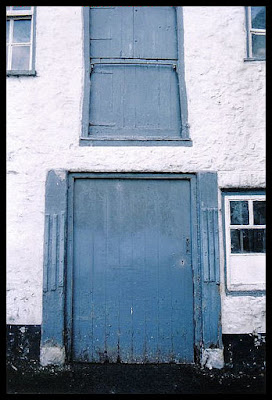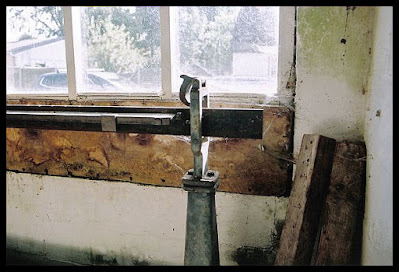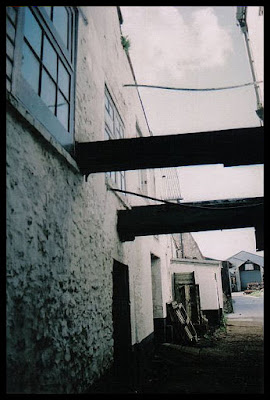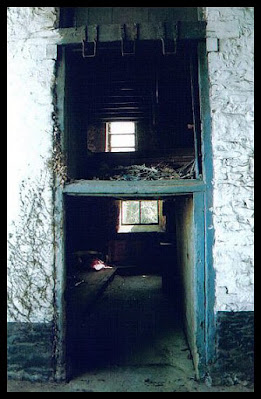My second visit was in late september 2014. I was at the Garden Shop a little further up the lane with two friends. It was a sunday and there was a jazz band playing in the outdoor garden area, so we'd decided to have lunch there whilst enjoying the music. I had my camera with me and, as I'm not one to sit around for too long, I decided to take some photos of an interesting building opposite...and before I knew it I'd also gravitated to the tannery again. This time I ventured further into the site.
I included the history about the tannery, also the tanning processes, on the first part. Therefore, please read that for the relevant information. However, I did leave something out, which is that the front buildings are Grade II Listed. As I mentioned previously, although the buildings have been here since Mediaeval times they have mostly been rebuilt during the 18th century and some added to during the 19th. Even with the addition of some Georgian windows the site has that wonderful late Mediaeval/Tudor feel to it.
On my way in I had a closer look at the weighbridge office.
I tried the door and it was open, so I snuck some photos of the interior.
The weighing machine, above & below. The weighbridge in front of the office is used to weigh trade vehicles, both full and empty as they come and go, in order to calculate the load carried.
The right side building at the front, below. I didn't take any photos of the building on the left side with the wonderful louvred archway, but several can be seen on part one in the previous post.
I took more photos of these fab gantry walkways though, as I just can't get enough of them.
Some of the buildings that I hadn't taken photos of before.
A couple of intriguing little entryways.
And more buildings further on into the site.
Plus some odd bits & bobs, including this cute little barrow...
...some metal barrels...
...and an old winch housing along with some fab windows.
I came across this old piece of machinery again and this time took some close-ups.
I don't know what it is but it does have a hopper on the top, therefore was probably used to feed something through. I'm wondering if it might have been an earlier grinder for the oak bark, although please don't quote me on this as it's just my own conjecture.
Looking back towards the front of the site.
I had another look inside where the watermill is housed and took some photos of the mill pond through the window.
Next to this I found an entry to the side of the deep layer pits, photo below, together with a bell by the wall at the end that I hadn't noticed on my first visit.
And some more of the gantry walkways...just because! ;)
I hope you enjoyed the tours around this fabulous site. And if you haven't done so already, please check out Part One for the interior and other exterior photos, process information and history. Cheers. :)









































No comments:
Post a Comment